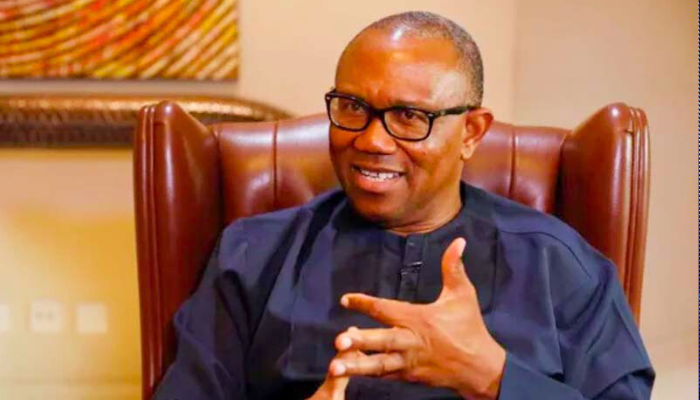Peter Obi, the Labour Party’s 2023 presidential candidate, has accused President Bola Tinubu’s administration of economic mismanagement, asserting that the government has failed to implement effective policies.
Speaking in an interview on Arise News Prime Time on Tuesday, April 1, Obi pointed to several key issues, including the devaluation of the naira, rising national debt, and high-interest rates, which he believes have worsened Nigeria’s economic woes.
Obi criticised President Tinubu’s decision to float the naira without ensuring adequate productivity to back up the currency’s value. He argued that such a move had only exacerbated Nigeria’s economic challenges.
“You cannot devalue your currency without productivity,” Obi stated, emphasising that he would have prioritised injecting money into productive sectors of the economy to ensure sustainable growth.
READ ALSO: Rivers State of Emergency: Unconstitutional, reckless, says Peter Obi
The former governor of Anambra State also expressed concern over Nigeria’s growing debt, which he said had surged from N17 trillion to over N170 trillion in just two years under Tinubu’s administration. He highlighted that the cost of debt servicing now exceeds the government’s budget for crucial sectors like healthcare and education.
Obi cited the fact that 70% of primary healthcare centres in the country were non-functional, along with the deterioration in primary schools, as signs of the government’s failure to address basic needs.
On governance, Obi stressed that leadership under Tinubu had been ineffective, noting that positive changes could have been achieved within two years with the right leadership.
“If I were president, you would have seen progress in critical areas like education and healthcare,” Obi asserted.
He also criticised the high-interest rates, which he said were making it difficult for businesses to thrive in the country.
read also: Peter Obi prevented me from defeating Sanwo-Olu – Jandor
Despite challenges within the Labour Party, Obi reaffirmed his commitment to the party, stating he was working with other political figures, including former Vice President Atiku Abubakar, to improve Nigeria’s future.
He also expressed concerns over the government’s treatment of opposition voices, claiming that Nigeria’s political space was designed to suppress opposition, citing the declaration of a state of emergency in Rivers State as an example of the administration’s authoritarian tendencies.
Looking ahead to 2027, Obi remained focused on forming alliances to address Nigeria’s challenges, particularly in education and healthcare.
“I am not desperate to be president; I am desperate for Nigeria to work,” he concluded.



